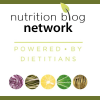Iron deficiency is very common especially among women. The symptoms are not as obvious and often get ignored. The most common symptom is lack of energy. Other symptoms include feeling tired even after having slept for a good 8 hours, irritability, feeling low and inability to concentrate. It is important to treat iron deficiency as if it is left untreated it can progress on to anaemia which is characterized by a smaller number of red blood cells.
Who is likely to be deficient?
Women who are pregnant, breastfeeding and experience heavy periods are at risk of being deficient. It can also be hard for vegetarians to meet their requirements as plant sources of iron are not as well absorbed by the body as are animal sources. Women between the ages of 19-50 years of age have a requirement of 18 mg/day and women above the age of 50 years of age have a requirement of 8 mg/day. Men on the other hand have a requirement of 8 mg/day.
Iron is essential for carrying oxygen from the lungs to the rest of the body, maintaining a healthy immune system and for energy production. The tests to measure iron levels include serum, serum transferring (protein responsible for transferring iron) and serum ferritin (Iron stores in the body).
What are the dietary Sources of Iron:
There are two types of iron, haem and non-haem. The haem –iron is better absorbed than the non-haem type. The haem iron sources include beef, lamb, fish, pork and chicken. The redder the meat, the better source of iron it is. The non haem iron sources include iron fortified breakfast cereals (example: Uncle Toby plus, Weet-bix), tofu, spinach, eggs and legumes.
How do we increase the iron intake?
- Beef and lamb 3-4 times a week.
- Vitamin C increases the absorption of iron. Hence combining a non-haem iron source with a source of vitamin C like strawberries, half an orange, medium tomato or 3 broccoli florets will increase the absorption of iron.
- Avoid drinking tea, coffee or cola along with meals and instead have it in between meals as the caffeine decreases the absorption of iron.
Do we need supplements?
If you are iron deficient, your doctor may prescribe an iron supplement to enable the iron levels to return to normal. Once the levels have returned to normal, you may no longer require a supplement and you can meet your iron requirements from your diet.
Contact us for results focused on nutritional advice
This article was written by our dietitian and nutritionist Juhi Bhambhaney. If you have any questions regarding health and nutrition, make an appointment with one of our dietitians. We‘ll provide you with a simple and effective routine targeted to your concerns. Contact us today.
The post How to make sure your getting enough Iron appeared first on ENT Wellbeing Sydney.










